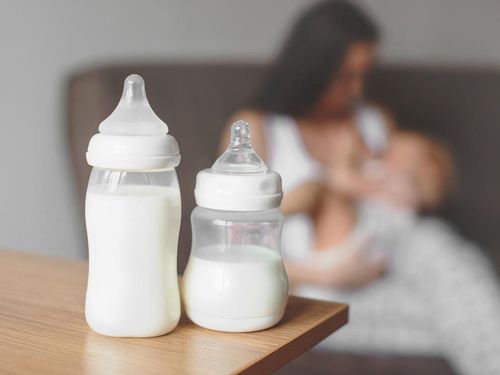This is an automatically translated article.
During pregnancy, the nutritional needs of pregnant women are extremely important because it provides nutrients for both mother and baby. However, the postpartum diet for pregnant women is equally important. It helps the mother's body to quickly recover after childbirth, and at the same time provides the energy and nutrients needed to care for and nurture the baby.
1. Postpartum diet has a great influence on breast milk supply
Most babies are fed with breast milk after birth. Therefore, the nutritional needs of mothers during this period are based on the amount of breast milk and the development of the baby.
Some studies suggest that the nutritional status of the mother after delivery has an effect on the quantity and composition of breast milk. When a mother eats less than she needs, some nutrients in breast milk change, such as the ratio of fatty acids or some micronutrients. To ensure the mother's diet during this period, it is necessary to provide enough and balanced nutritional components. In addition, it is recommended to combine a variety of foods to improve the quality of the diet. Besides, the foods used in the diet should choose seasonal foods.
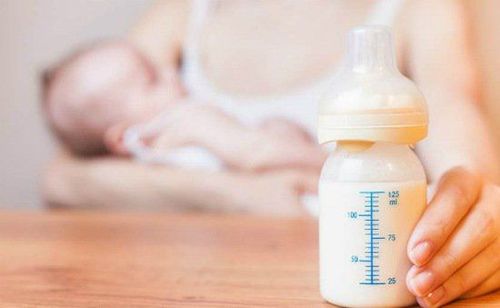
Chế độ dinh dưỡng của người mẹ sau khi sinh có ảnh hưởng lớn đến chất lượng sữa tiết ra
2. Nutritional needs of mothers after giving birth
Energy: The mother's energy during this period is needed and should be equivalent to the energy for the mother to excrete milk. Energy needs need to add 550 - 625 kcal / day compared to the needs of adults. Protein : Protein requirements are increased compared to adults is 20 -25 grams / day. Lipids: For women in general and postpartum mothers in particular, the total lipid/energy requirement (%) is 20 - 25%, and the maximum is 30%. Vitamins: Vitamin B2 (increase by 0.5mg/day), vitamin C (95mg/day), folate (increase by 100 mcg/day), vitamin A (850mg/day) Minerals: Iron (24mg/day), calcium ( 1,300mg/day), zinc (9.5mg/day)
3. Foods to choose for mothers after giving birth
Regularly eating healthy foods will help maximize energy for mothers after giving birth. Food choices for mothers after giving birth play an important role in milk quality. Some healthy foods that should be included in a postpartum mother's diet include:
3.1. Salmon This is a beneficial food for postpartum mothers. Salmon, like other fatty fish, contains very rich amounts and is important for the development of the baby's nervous system. The DHA content in breast milk is not high, but if the mother consumes a lot of salmon, this content will increase.
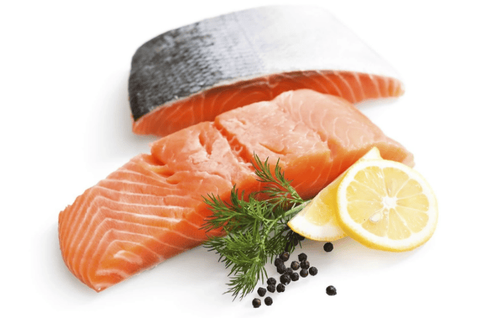
Cá hồi là thực phẩm chứa lượng lớn DHA và nhiều chất dinh dưỡng khác
3.2. Low-fat dairy products Milk is an important part of postpartum as well as nursing mothers. Milk provides a healthy dose of vitamin D that promotes bone strength. In addition, it provides protein and B vitamins, along with a rich source of calcium. Breastfeeding mothers who consume milk will be provided with extra calcium to help their baby's bones develop. Therefore, the mother must provide enough calcium to meet the needs of both mother and baby.
3.2. Lean beef Lean beef is not only an energy booster for the mother, but also a food that provides iron to meet the recommended needs. Iron deficiency can deplete energy and also fail to meet your baby's recommended iron needs.
In addition, lean beef is also a source of protein and vitamin B12, which is essential for nursing mothers.
3.3. Legumes Legumes are iron-rich foods, especially dark colored ones like black beans and oval beans. This is a great food for nursing mothers. It is a good source of plant-based protein for nursing mothers and vegetarians as well.
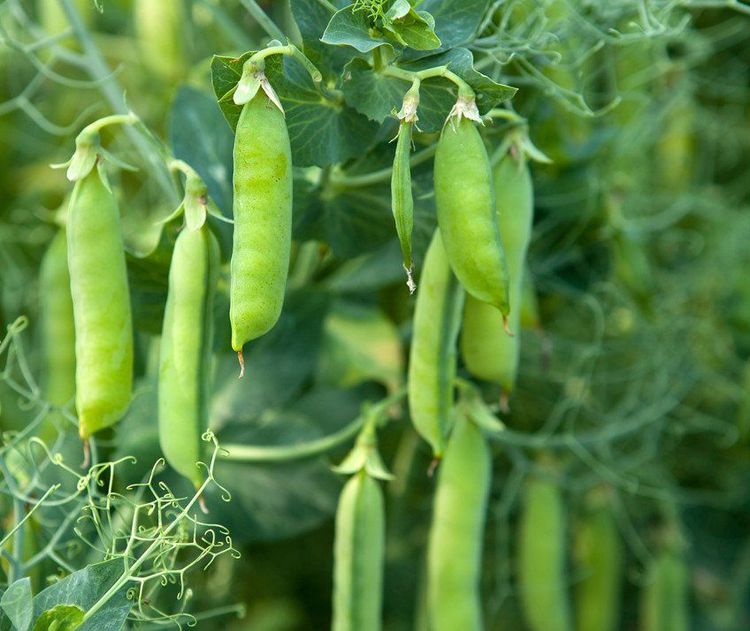
Cây họ đậu được các chuyên gia khuyến cáo nên sử dụng cho các mẹ sau sinh
3.4. Blueberries Blueberries are berries that contain many vitamins and minerals that are healthy for expectant mothers. In addition, it also provides a good amount of carbohydrates to help the mother keep her energy levels high.
3.5. Brown rice With postpartum mothers, the issue of weight is always concerned. Most moms want to lose weight by cutting back on carbs. However, losing weight too quickly will cause lactation to be reduced. During this period, you can use whole grain carbs such as brown rice to include in your diet to ensure the required energy levels according to the recommendations. Plus, foods like brown rice can provide you with the calories you need to make the best quality milk for your baby.
3.6. Oranges This is a convenient and nutritious food. Orange not only helps mothers after giving birth to increase energy, but it also provides a rich amount of vitamin C to meet the needs of both mother and baby.
3.7. Eggs Eggs are a versatile food that meets your daily protein needs. In addition, it is considered to have a perfect protein content with most amino acids that the body cannot synthesize on its own. Eggs not only contain a good amount of vitamins and minerals, but also contain quite a lot of choline. Therefore, eggs are an indispensable food in the mother's diet after giving birth because it meets all the necessary substances according to the recommended needs.
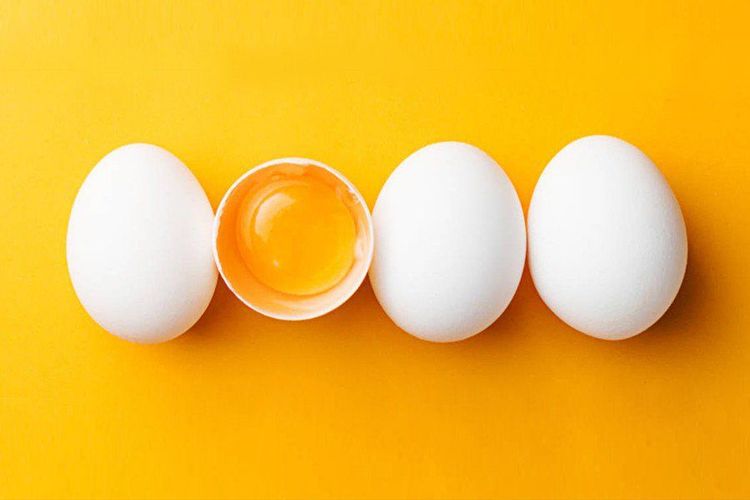
Các loại trứng chứa lượng lớn Protein đáp ứng nhu cầu của cơ thể hằng ngày
3.8. Wholegrain bread Folic acid is very important in the development of your baby in the early stages of pregnancy. But its importance does not end there. Folic acid is also an important nutrient in breast milk that your baby needs for good health. Whole-wheat bread not only boosts your diet with folic acid, but it also provides a healthy dose of fiber and iron.
3.9. Green leafy vegetables Green leafy vegetables such as spinach, Swiss chard, broccoli contain high levels of vitamin A - a very good vitamin for both mother and baby. Their benefits don't stop there. They are also a good source of calcium, vitamin C and iron for the body. Besides, they contain both heart-healthy antioxidants and are low in calories.
3.10. Whole grains Whole grains provide essential vitamins and nutrients to meet daily needs.
3.11. Water Water helps in the maintenance of energy as well as the mother's ability to produce milk. Because breastfeeding mothers are especially at risk of energy dehydration. Therefore, mothers need to pay attention to supplement to meet their fluid needs by drinking juice, milk....
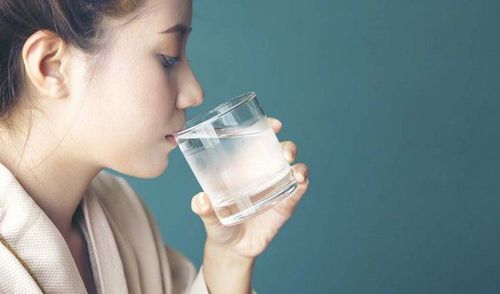
Các mẹ sau sinh nên bổ sung nước đầy đủ giúp giảm nguy cơ mất nước năng lượng
4. Foods and Drinks to Avoid
Breastfeeding in the first years of life will help children increase resistance and develop healthy. Therefore, besides the foods that need to be supplemented, nursing mothers need to abstain from the following foods and drinks:
Alcohol: No alcohol content in breast milk is considered safe for the baby. If the mother drinks alcohol, she should avoid breastfeeding until the alcohol has been completely cleared from the milk. For example, a mother who drinks 355ml of beer with 5% alcohol content needs 2-3 hours to completely clean the alcohol in milk, or 148ml of wine with an alcohol concentration of 11 also needs about 2-3 hours to completely clean the alcohol. However, this also depends on the mother's body weight. Caffeine: Avoid drinking more than 2-3 cups of caffeinated beverages per day. The caffeine in breast milk can stimulate your baby or interfere with your baby's sleep. Seafood: Seafood is a rich source of protein and omega-3 fatty acids. However, most seafood contains mercury and other contaminants. Excessive exposure to mercury through milk can put your baby's developing nervous system at risk. To limit exposure, you should avoid seafood containing mercury such as swordfish, mackerel, and stingray.
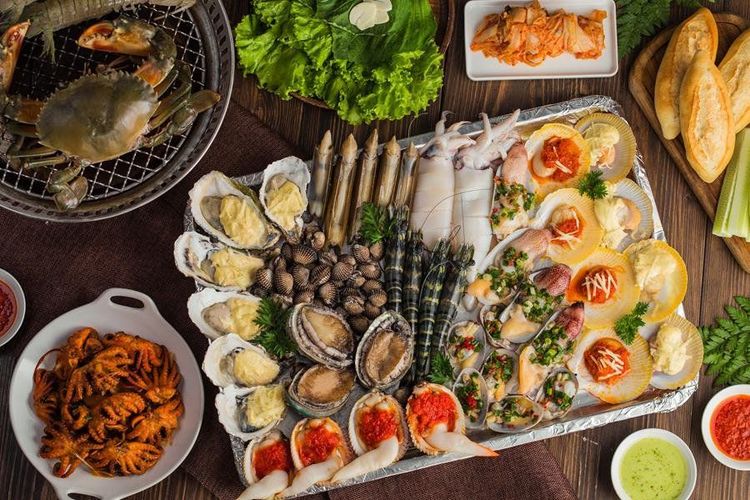
Phụ nữ sau sinh nên hạn chế ăn hải sản có chứa thủy ngân
In order to improve the quality of medical examination and treatment, now Vinmec International General Hospital has put a system of modern medical machines up to standard in the examination and treatment of diseases. Especially with the implementation by a team of qualified, experienced doctors who wholeheartedly care, treat, restore and advise on postpartum nutrition, will bring satisfaction to customers.
Customers can directly go to Vinmec Health system nationwide to visit or contact the hotline here for support.
References: mayoclinic.org, webmd.com







